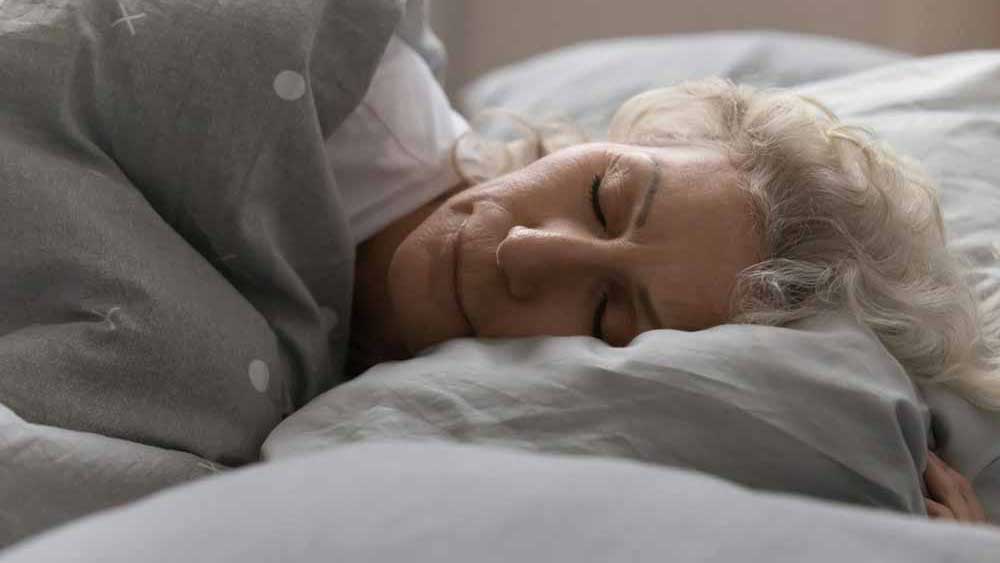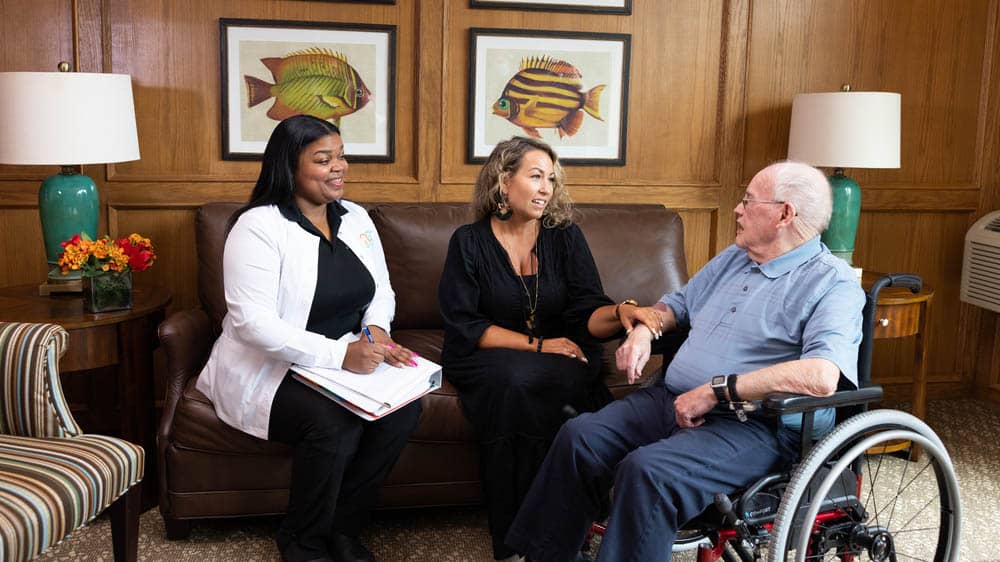

10 Tips for Improving Sleep Quality
March 14 – 20, 2021, Is Sleep Awareness Week
We sometimes hear people brag about how little sleep they get. “My life is so busy that I just can’t waste time sleeping!” they might say. And in articles about successful people, it’s almost a cliché that they claim to sleep only a few hours each night.
Are these people to be envied? In fact, by shorting themselves on sleep, they may be harming their health. Insufficient sleep, or poor-quality sleep, raises the risk of a host of health problems, including diabetes, high blood pressure, depression, heart disease, stroke and injuries. And while it might seem that moving around more and sleeping less would help us control our weight, in fact, chronic sleep deprivation also is linked with obesity.
Short sleepers might also be dulling their memory. “When you are asleep, your brain catches up on tasks it can’t do while you are navigating your day, such as cleaning out waste, saving new information, and filing away memories,” said Dr. Randall Wright, director of the Houston Methodist Brain Wellness Program. “So many people tell me that they just need that extra hour in the day to do more around the house or catch up on work, but what they don’t realize is that they are getting more done today while sacrificing tomorrow’s productivity. A tired brain causes us to feel sluggish, have poor concentration and fall asleep while driving or at our desk. So in the end, we really aren’t getting more done.”
University of California, Los Angeles professor Van Savage agrees. In 2020, Savage conducted imaging that demonstrated that the structure of babies’ brains is built during sleep—but once we’re two years old or so, slumber is instead the time for maintenance and repair. Savage, too, emphasizes the importance of prioritizing sleep, despite temptations to do other things. “I fought sleep and pulled all-nighters when I was in college, and now think that was a mistake,” he said. “I would have been better off with a good night’s sleep. Now when I feel tired, I don’t have any guilt about sleeping.”
Neurologists have long known that poor sleep can be an early sign of Alzheimer’s disease. And in September 2020, experts from the University of California, Berkeley released research showing that poor sleep might even be a predictor of dementia. In a multi-year study, they observed older adults in a sleep laboratory. They also measured changes in the participants’ brains that would suggest Alzheimer’s disease. “We have found that the sleep you’re having right now is almost like a crystal ball telling you when and how fast Alzheimer’s pathology will develop in your brain,” said neuroscientist Matthew Walker.
But there’s good news! While we can’t control our genetic makeup or some of our other personal risks for dementia, sleep is a modifiable factor. “The silver lining here is that there’s something we can do about it,” said Walker. “The brain washes itself during deep sleep, and so there may be the chance to turn back the clock by getting more sleep earlier in life.” Added study co-author neuroscientist Joseph Winter, “If deep, restorative sleep can slow down this disease, we should be making it a major priority. And if physicians know about this connection, they can ask their older patients about their sleep quality and suggest sleep as a prevention strategy.”
This is important advice for many of us. The National Sleep Foundation, sponsor of Sleep Awareness Week, reports that barely half of Americans say they are getting enough sleep, and even fewer are sleeping well. Experts agree on these 10 tips for improving sleep quality:
1. Make sleep a priority. Put it on your to-do list if you have to! If you set an alarm to get up in the morning, consider setting another one to remind you to start winding down at bedtime.
2. Keep a routine. If you’re having trouble falling asleep and staying asleep, it can help to go to bed and wake up at the same times each day. As bedtime approaches, do things that relax you, such as meditation, reading, listening to calming music or taking a warm bath. A routine trains your brain to release sleep hormones at the right time.
3. Power down all your devices. The light-emitting screens of phones, tablets, computers and even our TVs can suppress melatonin, the hormone that helps us sleep. These devices also tempt us to stay up later than we might have planned. And banish your phone from your room; studies show that even if it’s turned off, we might feel tempted to check our email or social media pages.
4. Get more exercise. Physical activity during the day makes it easier to sleep at night. A walk outside might be just the thing, because sunlight during the day also promotes better sleep. But don’t work out too close to bedtime, which can make us more alert and wakeful.
5. Avoid large meals close to bedtime. “The brain runs the digestive system, which takes a few hours to process food and settle down for the night,” advises the Houston Methodist team. “The brain will not be able to settle down and prepare for sleep until the digestive system does as well.”
6. Reconsider caffeine and alcohol. If you drink coffee, have your last cup before noon. Some people are advised to give up caffeinated beverages entirely. And while there’s a myth than a “nightcap” can ease us into slumber, in fact, drinking alcohol too close to bedtime suppresses the most restorative types of sleep.
7. Give your sleep space a makeover. Some people can fall asleep anywhere, but most of us find our sleep disturbed if the room is too warm or too cold, or if there is noise or too much light. Hang blackout curtains over the window to darken the room. Earplugs, a fan or a white noise machine can block out sounds.
8. Rethink sleeping pills. These medications may help us drift off, but drugged sleep is largely lacking in the natural sleep cycles that are best for the brain. They should only be taken short-term and only under the supervision of a healthcare professional.
9. Have sleep problems evaluated. Sleep specialists today offer diagnosis and treatment of a wide variety of sleep problems—insomnia; middle-of-the-night wakefulness; snoring; and sleep apnea, a disorder that causes interrupted breathing during sleep. (And here’s some extra incentive: Studies show the sleep partners of these patients benefit, too.)
10. Don’t chalk up sleep problems to “just getting older.” The National Sleep Foundation says that while sleep patterns do typically change with age, insomnia and wakefulness are more often due to an underlying medical condition, such as arthritis, an anxiety disorder or incontinence. Managing these conditions can improve sleep. And patients should ask their doctor or pharmacist to review all their medications; some can disturb sleep.
A note to family caregivers: If you’re caring for an older loved one or a loved one with disabilities, you aren’t likely a stranger to sleepless nights. If your loved one lives with you, you may lie awake wondering if they are safe heading for the bathroom in the middle of the night. If your loved one has dementia, nights can be disrupted by your loved one’s wandering at night—and by your own middle-of-the-night stress and fretting. An October 2020 study from Edith Cowan University in Australia found that 94% of that nation’s dementia caregivers are sleep deprived! This is a top factor as you decide on the best care for your loved one. If, like most families, you hope to keep your loved one at home for as long as possible, the support of professional in-home care can be a good resource for you. Learn more about how in-home care can help, so you can get a good night’s sleep.







